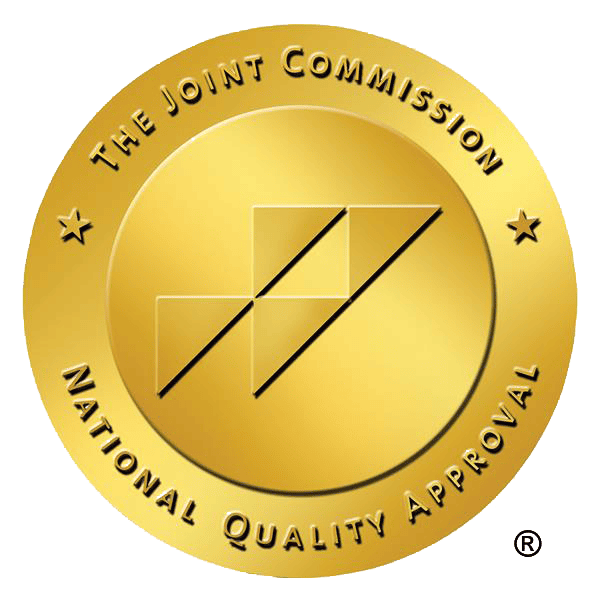Anxiety disorders can intrude into day-to-day activities, and harm a person’s work, social, school, and family life. They can also cause complications like alcohol use disorder (AUD), depression, or drug abuse.
Many effective treatments for anxiety disorders are available. However, only about 27.6% of people who need treatment actually get help. If you think you need assistance, there is treatment available at Prairie Recovery in Austin, Texas.
What is Anxiety?
Anxiety is an emotion that can sometimes feel like:
- General uneasiness
- Dread
- Fear
It might make you sweat, feel tense or restless, and have a rapid heartbeat.
It can also be a normal stress reaction. It may come from making an important decision, a test, or a difficult problem.
On the other hand, anxiety can also help you:
- feel energized
- stay alert
- stay aware of risks
- learn to cope
- motivate you to solve problems
Nevertheless, anxiety can be a mental health issue if it’s:
- continuous
- difficult to manage
- out of proportion to the circumstances

What are the Signs and Symptoms of Anxiety?
An anxiety disorder is a condition in which anxiety is constant and may get worse over time. Symptoms of anxiety disorder include:
Physical signs
- Rapid heartbeat
- Lightheadedness
- Sweating
- Diarrhea
- Breathing difficulty
- Easily fatigued
- Mysterious new aches and pains
Mental signs
- Excessive worrying
- Believing the worst will occur
- Making assumptions based on a single event
- Problems concentrating
- Irritability
- The feeling of imminent danger
Behavioral signs
- Muscle tightness
- Avoiding feared events or situations
- Frustration and irritability in feared situations
- Compulsive actions such as constantly washing hands
How to Help a Loved One Get Help for Anxiety?
Although you can’t force someone to get help if they don’t want to, you can still support them by offering help without pressure, actively listening to them, acknowledging their feelings, and being available when they might be ready to reach out. When helping someone with anxiety, here are some key points to remember:
- Don’t force them–Pushing too hard can increase their resistance
- Validate them–Acknowledge their viewpoint and express that you understand why they don’t want to get help
- Don’t tell them to “calm down”-This may make a person with anxiety feel misunderstood and invalidated
- Support without judgment–Let them know you’re there for them if they change their mind
- Be clear–Express your concern for their well-being and explain your intentions
- Patience–It takes time to change, and your loved one may need to reach the point where they’re ready to get help
If your loved one’s anxiety starts to hinder their ability to enjoy their life, participate at school or work, or spend time with friends, it’s time for professional help. Encourage them to make an appointment with a mental health professional. If they resist, explain that it’s just one appointment and doesn’t mean they have to commit to treatment or that particular therapist. It’s like an annual exam but for your emotional and mental health.
Why Should an Individual Consider Treatment for Anxiety?
Normal, helpful anxiety is controllable. It can help you feel prepared without being overwhelming or all-consuming. “Unhelpful” anxiety is upsetting and disturbs a person’s life and relationships. It actualizes significant, uncontrollable distress and causes a person to avoid situations that might cause those feelings. In addition, anxiety disorders can also increase your risk for other medical problems such as:
- Heart disease
- Diabetes
- Depression
- Substance abuse

What are the Types of Anxiety Treatment?
The main types of treatment for anxiety disorders are medications, talk therapy, or a combination of both.
Talk Therapy (psychotherapy)
Psychotherapy will help you identify and change disturbing thoughts, emotions, and behaviors. Therapy should focus on your specific needs and anxieties. Some of the best approaches include:
- Cognitive Behavioral Therapy (CBT)
CBT is the most effective form of therapy for anxiety disorders. It teaches you different ways of thinking and behaving. Since behavior is learned; it can also be unlearned. CBT helps you change the ways you react to the things that make you feel fear and anxiety.
- Exposure Therapy–Included in CBT
This approach focuses on having you confront your fears through gradual exposure. Through exposure, you will be able to accomplish the things you’ve been avoiding.
- Acceptance and Commitment Therapy
This therapy uses strategies such as goal setting and mindfulness to lower anxiety and discomfort.
Medications
Medicine used to treat anxiety disorders include:
- Anti-anxiety medications (buspirone)
- Antidepressants
- In some cases, other types of medications may be prescribed. These may include benzodiazepines or beta blockers. They are for short-term use only.
Certain types of medications work better for specific types of anxiety disorders. It may be necessary to try more than one medication before finding the right one.
Prairie Recovery Offers Anxiety Treatment in Austin, TX
If you have a loved one struggling with anxiety, Prairie Recovery Center in Austin can provide much-needed treatment. If your loved one has been trying to treat their anxiety through substance use, treatment is vitally important. Substance use and mental conditions are common. It’s unfortunate, but it’s true.
At Prairie, we can provide a dual diagnosis program. When a person has a substance abuse problem and a mental problem at the same time it’s called a dual diagnosis. To achieve a successful outcome, both problems need to be treated simultaneously.
Depending on the severity of the problems, we can offer several treatment programs:
- Drug Detox – if the addiction is severe, medical withdrawal is safer and more effective
- Residential Treatment – living at the facility during treatment
- Intensive outpatient program – attending treatment at the facility but returning home
Our therapists are licensed and certified in a variety of therapeutic approaches, so we can create a plan that suits your needs and requirements. From individual therapy sessions to mindfulness and meditation practice, we have specialists who can help ease minds and strengthen bodies with yoga therapy.
Make an appointment for a visit. See what we have to offer. Contact us today and take the first step to being kind to yourself.
References:
Reach out for dual diagnosis treatment in Austin, TX
By making the courageous decision to seek dual diagnosis rehab, you’re not just treating the symptom; you’re getting to the root causes.
Finding the right mental health and addiction treatment in Austin with an experienced professional staff is essential.
Our mission revolves around whole-person treatment, and we are proud of the holistic and evidence-based therapies we offer.
Contact us today and experience the care you deserve with our dual diagnosis treatment in Austin, TX.





